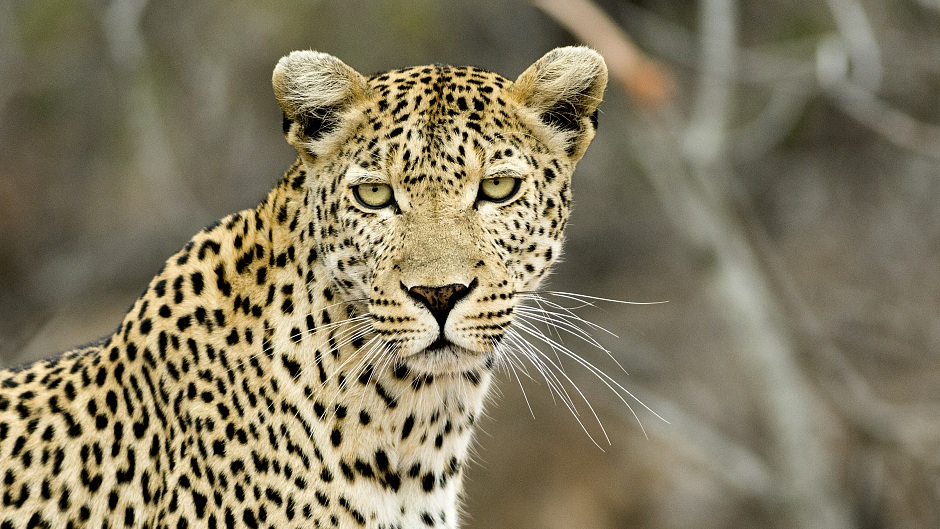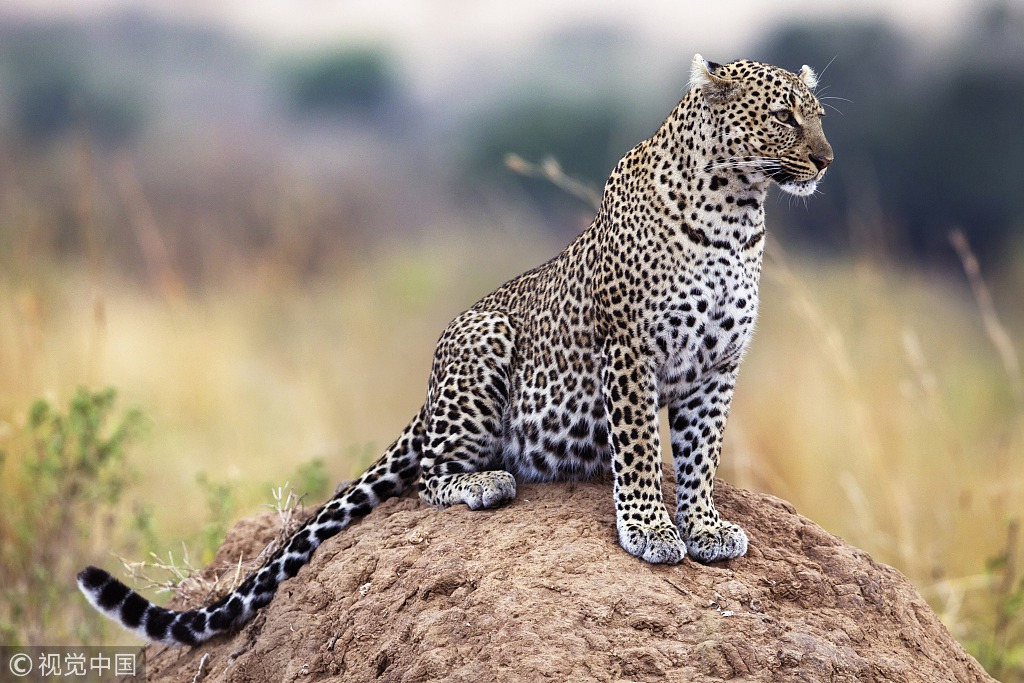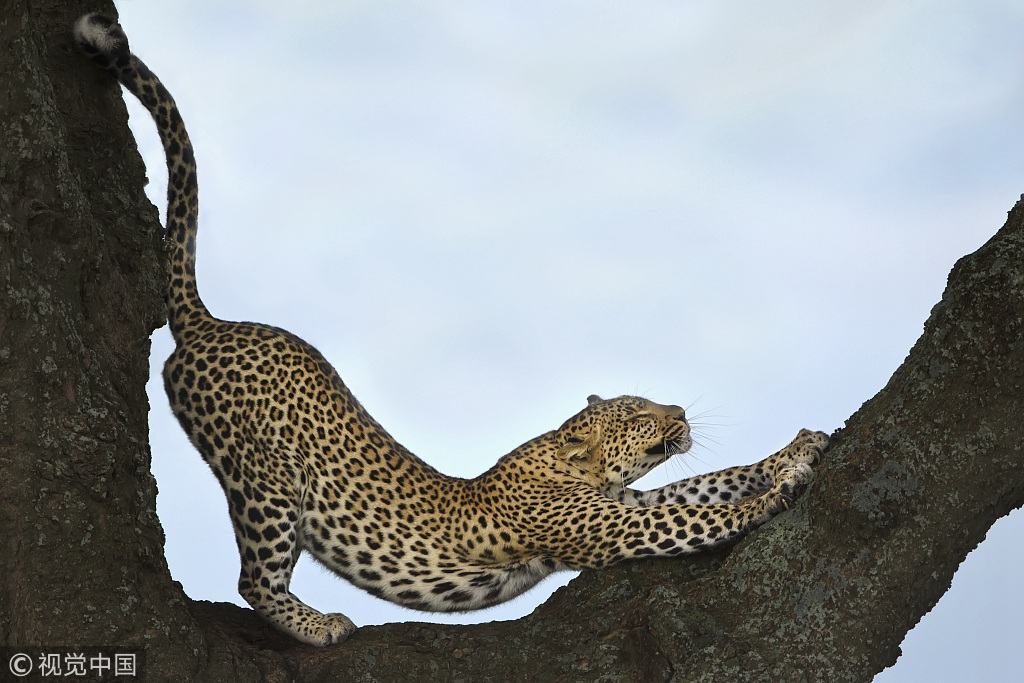
Animal
13:55, 31-Mar-2019
Leopards captured on infrared camera in SW China
CGTN
01:05

Researchers have collected more than 20 infrared images of leopard activity in Xinlong County, southwest China's Sichuan Province, over the past three months.
Researchers entered the mountains between March 20 to 26 to retrieve footage captured by infrared cameras posted on trees in the forest. The footage included many images of leopards wandering around their natural habitat.
With distinctive dark spots on the light-colored body, leopards are strong and graceful big cats. They are known as good swimmers and climbers, which make them adept hunters.

Leopard using termite mound as a vantage point, Masai Mara National Reserve, Kenya. /VCG Photo
Leopard using termite mound as a vantage point, Masai Mara National Reserve, Kenya. /VCG Photo
Starting in November 2018, the Sichuan Forestry and Grassland Bureau, Peking University, and the local forestry department of Xinlong County organized a research team to study the number of leopards in the area.
"We began to collect the data the infrared cameras captured this year, which will be further analyzed. Then we will know where the leopards are distributed and how many there are. Probably many leopards live in this area, and it stands a good chance of being a large habitat for leopards in China," said Pu Hongliang, leader of the research team.

Leopard stretching in a tree at Serengeti plains. /VCG Photo
Leopard stretching in a tree at Serengeti plains. /VCG Photo
The cameras also captured footage of other animals like Alpine musk deer, sambar deer, and Chinese serow, which can be prey for leopards. This indicates the region has well-preserved forests suitable for leopards to live.
Once leopards were commonly seen in forests in China except for a few regions. Now, their distribution in China is mysterious and demands more studies. Due to habitat loss, their population dropped over the years and the species is listed as Vulnerable on the IUCN Red List.
(Cover photo via VCG)
(If you want to contribute and have specific expertise, please contact us at nature@cgtn.com.)

SITEMAP
Copyright © 2018 CGTN. Beijing ICP prepared NO.16065310-3
Copyright © 2018 CGTN. Beijing ICP prepared NO.16065310-3